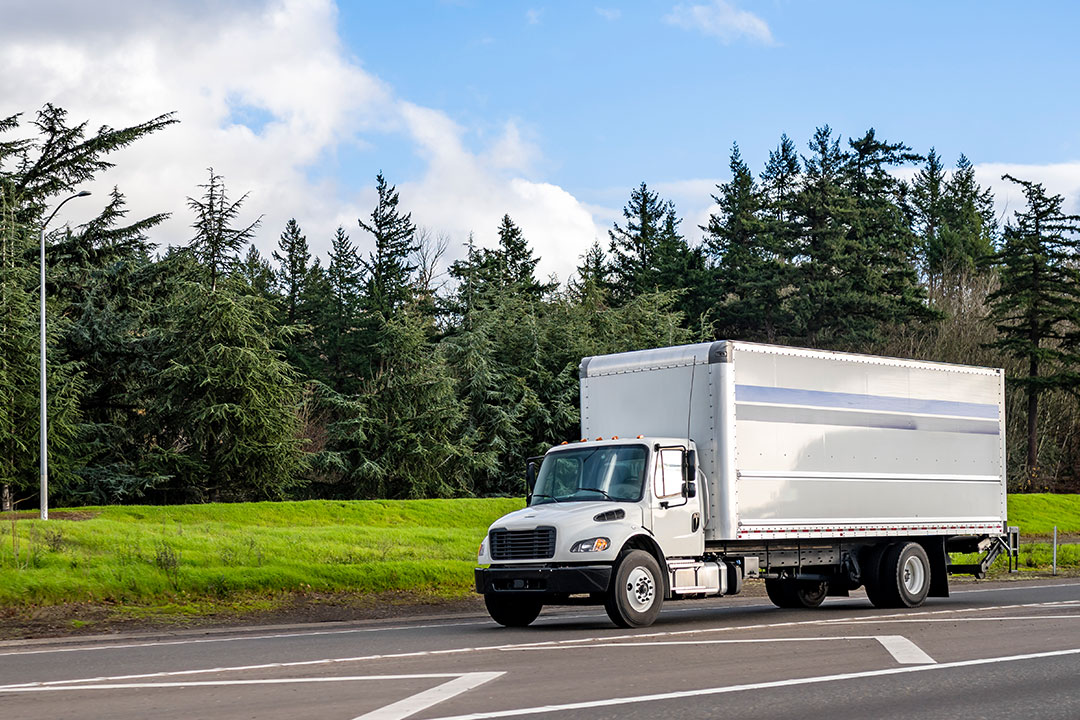Truck drivers amass thousands of miles on cross country deliveries each year. While many destinations require city driving, there are many roads in between cities that extend for miles into the more rural areas of the United States. As experienced lawyers for truck accidents, we have seen devastating rural trucking accidents that result in years of recovery or complete loss of life.
If you have been wrongfully injured in a truck accident while driving on a rural road or highway, our attorneys are here to help you build your case.
The Differences Between Rural and City Driving
Supplying the nation with the goods it needs to keep our economy moving requires truck drivers with the necessary skills to navigate all U.S. roadways. Trucks driving through cities and larger towns will experience more activity on the road such as increased traffic flow, road work, pedestrians and traffic lights. Additionally, speed limits are generally lower in cities and large towns compared to open roadways in rural areas.
While driving on a rural road, truck drivers will often experience less congestion, increased speed limits and an absence of road lights while driving at night. These driving conditions may create a false feeling of security, which can increase the chance that a truck driver will cause a serious accident.
Common Causes of Trucking Accidents on Rural Roads
As lawyers for truck accidents, we encourage all truck drivers to be aware of changes in the road by paying close attention no matter where you drive. A majority of fatal trucking accidents are caused due to these circumstances:
- Highway Hypnosis. While driving on a rural road, some drivers may experience highway hypnosis, which is a trance-like state that can occur while driving long distances on less populated rural highways. Drivers may experience a loss of awareness, decreased reaction times and poor decision making if they are not fully alert to the changes in the roads.
- Distracted Driving. With fewer drivers on the road, drivers may feel compelled to fall into forms of distracted driving such as eating, texting, making a cell phone call or changing a song on the radio. When driving on a rural road, stay alert and wait until the next rest area to do these activities.
- Curved Roads. Rural roads are often curvy with only one or two lanes going in each direction. Trucks may off-track on a curve and sideswipe another car coming from the opposite direction, or they may underestimate the depth of the curve and swerve off the road if the weight of their cargo is not distributed properly.
- No Road Shoulders. On smaller rural roads, there is often not enough room to add a shoulder onto the side of the road. Truck drivers must exercise caution while driving and pay attention to how close they are to the side of the road to avoid an accident.
- Inconsistent Road Conditions. Driving in less populated areas may also mean road conditions are not as consistent as they may be within city limits. Truck drivers must be careful of potential pot holes, roads not cleared of snow and ice in the winter and uneven roads that may not be treated as quickly as they would be in a city.
4 Types of Trucking Accidents on Rural Roads
While all truck accidents are dangerous, there is an increased risk for fatalities if you are hit by a truck while driving on a rural road. According to the 2020 report from the Federal Motor Carriers Safety Administration, approximately 54 percent of all fatal crashes involving large trucks occurred in rural areas and an additional 13 percent occurred on rural highways.
We commonly see these types of trucking accidents in rural areas:
- Jackknife. A jackknife accident occurs when a truck driver brakes too hard and its truck trailer swings around in a 90 degree angle across both lanes of traffic on a rural road.
- Rollovers. When a truck has a rollover accident, it is typically due to the driver going too fast or turning too sharply and causing the truck to flip onto its side.
- T-Bone Accidents. Rural roads may have an area where there is an intersection, and if a truck misjudges their time to cross the intersection, the driver may cause a t-bone accident with an on-coming car.
- Head On Collisions. If a truck is driving on a single-lane rural road and swerves into the on-coming traffic lane, they may cause a head-on collision. These often lead to catastrophic or life-ending injuries for drivers in smaller vehicles.
Contact our Lawyers for Truck Accidents in Missouri
Whether you are driving on a rural road in Franklin, Jefferson or Washington Counties or on familiar streets in the Greater St. Louis or Kansas City areas, a trucking accident may lead to serious injuries, long recovery times or the loss of a loved one. Our lawyers for truck accidents know how devastating these situations are to all victims, and we are here to provide the courage you need to tackle the unexpected roads that lie ahead. Contact our team of truck accident lawyers today to get back on your feet after an accident.
If you are seeking a partner attorney to help in a recent truck accident case, we are proud to partner with fellow attorneys to provide expertise. Please call 314.725.5050 to refer your case now.
